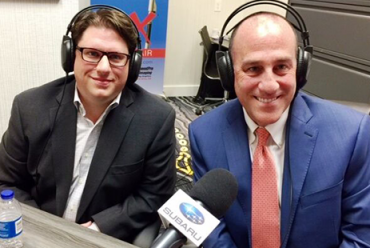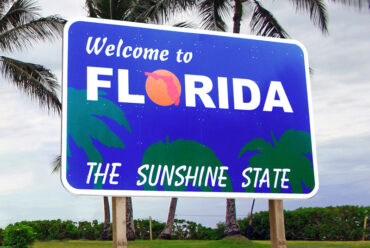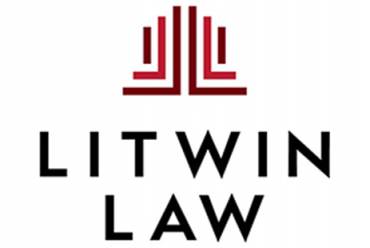Georgia Sales Tax on Beach Condos/Cottage Rentals, Mountain Cabin Rentals and Private Home Rentals
Under Georgia tax law, a provider of room rentals and accommodations must collect sales tax on the rental charge. Typically, one immediately associates these transactions with hotels and motels. Other businesses and individuals, too, may engage in such sales and be required to collect the tax. Businesses, such as property management companies, manage properties, including beach condominiums, beach cottages, mountain cabins and private homes. Individual homeowners, too, may rent their condo, beach cottage, or cabin for a week or weekend. These taxpayers must understand their obligations to collect sales tax on rental charges.
Rentals are Subject to Sales Tax. In Georgia, sales tax is imposed on retail sales. A retail sale includes the sale or charge for any room, lodging or accommodation provided to transients by any hotel, inn, tourist camp, tourist cabin, or any other place at which rooms, lodgings or accommodations are regularly furnished to transients for consideration. Businesses that own hotels, rental agencies, property management companies and private homeowners must collect the tax on rental charges.
Exclusion for Period of Greater than 90 Days. The private homeowner or property management company does not have to collect sales tax from the guest where the rental is for 90 or more continuous days.
Charges/Amounts Subject to Sales Tax. The property management company or private homeowner must collect sales tax on the total charge for the cabin/cottage/condominium/home. The property management company or homeowner cannot carve out from the tax base adjunct charges or “add-on” charges. For example, the one-week rental may be $2,000. The property management company/homeowner may charge additional fees, including a cleaning fee, early check-in/late check-out fee, Internet access/telephone fee, pet fee, fee for extra persons, damage/smoking fee, credit card processing fee, facility fee, or a resort amenity fee. The property management company/homeowner may also charge for additional room items, such as roll-away beds, cribs, refrigerators or microwave ovens. The property management company/homeowner may list these additional charges as separate line items on the guest’s invoice/folio. Nevertheless, these add-on charges are part of the total rental charge and are taxable. Thus, in the example, if the additional charges total $500, then the property management company/homeowner must collect sales tax on the total charge of $2,500 ($2,000 for the rental and $500 for the additional charges).
Is an Annual One-Week or Two-Week Rental Taxable? Yes. The Georgia Department of Revenue considers this rental, although short-term and not continuous (as with a hotel or three-month seasonal beach condo rental), to be a rental that is regularly provided by the homeowner. Thus, a homeowner who rents his/her home during Masters Week or race week should collect sales tax on the total charges, even though the rental is for one week each year.
Registration for Sales Tax and Collection of the Tax. A property management company that manages rentals or a homeowner who rents his/her beach condo, mountain cabin, or residence must register with the Georgia Department of Revenue and get a sales tax number. The property management company/homeowner should collect sales based on the sales tax rate of the county where the property is located. The property management company/homeowner should file a sales tax return every month and remit the tax collected during the prior month.
Unregistered Property Management Company/Homeowner. If the property management company/homeowner is not registered for sales tax collection, then the property management company/homeowner may be liable for back taxes for all years during which it did not collect sales taxes. In Georgia, and in most states, if a taxpayer is not registered and has not filed returns, then the statute of limitations is indefinite (i.e., no set date by which the Department of Revenue must assess tax for prior years). Homeowners are personally liable for failing to collect the tax. Further, and as to property management companies, failing to collect sales tax, a trust-fund tax, could subject all responsible persons (jointly and severally) to personal liability for the uncollected sales taxes.
Conclusion. Taxpayers that operate property management businesses that rent out cabins, beach cottages, or condos and owners of condos/cabins/homes must collect sales tax on the total charges. Taxpayers must collect sales tax on add-on charges, even if separately stated on the guest invoice. Taxpayers must be registered with the Georgia Department of Revenue and file a monthly return and remit the collected sales taxes. A business or individual owner that is not registered and that has not collected the tax is susceptible to having to pay (1) back uncollected sales taxes, (2) negligence penalties of 25% and (3) interest. Moreover, the Georgia Department of Revenue is not limited by a specific lookback period, and, as such, can assess for all periods during which the taxpayer failed to collect the tax. Thus, if the taxpayer has been renting his/her home every year since 2005, the Georgia Department of Revenue can assess tax, interest and penalties going back to 2005. The individual or business can minimize liability by coming forward through a voluntary disclosure to the Georgia Department of Revenue to limit look-back exposure and penalties (criminal and civil).
Litwin Law represents individuals and businesses in state and local tax matters. Litwin Law deals with a variety of issues that arise during audit and during protest and appeal to the Georgia Tax Tribunal and to local governments. If you or your client faces a local business occupation tax issue, and you are unable to resolve the issue, Litwin Law can help.
For over 30 years, and as a recognized Super Lawyer since 2008, Richard Litwin has devoted his practice to multistate tax, state and local tax, and tax controversies. He has chaired the State Bar of Georgia’s Section of Taxation and is highly active on Georgia Department of Revenue committees.
Note: “Pass the SALT” is a blog of The Litwin Law Firm, P.C., d/b/a Litwin Law, and is dedicated to sharing views and ideas on state and local taxation. This document is an overview and summary of state and local tax obligations. This document is not intended to be, nor should be interpreted as, legal advice. For legal advice, the reader should contact an attorney.
Credits: The Hero image of Cottage is taken from http://castle-hill-inn-newport.albooked.com/.








